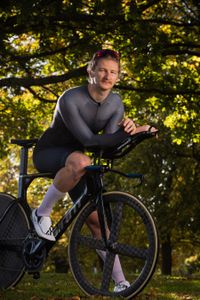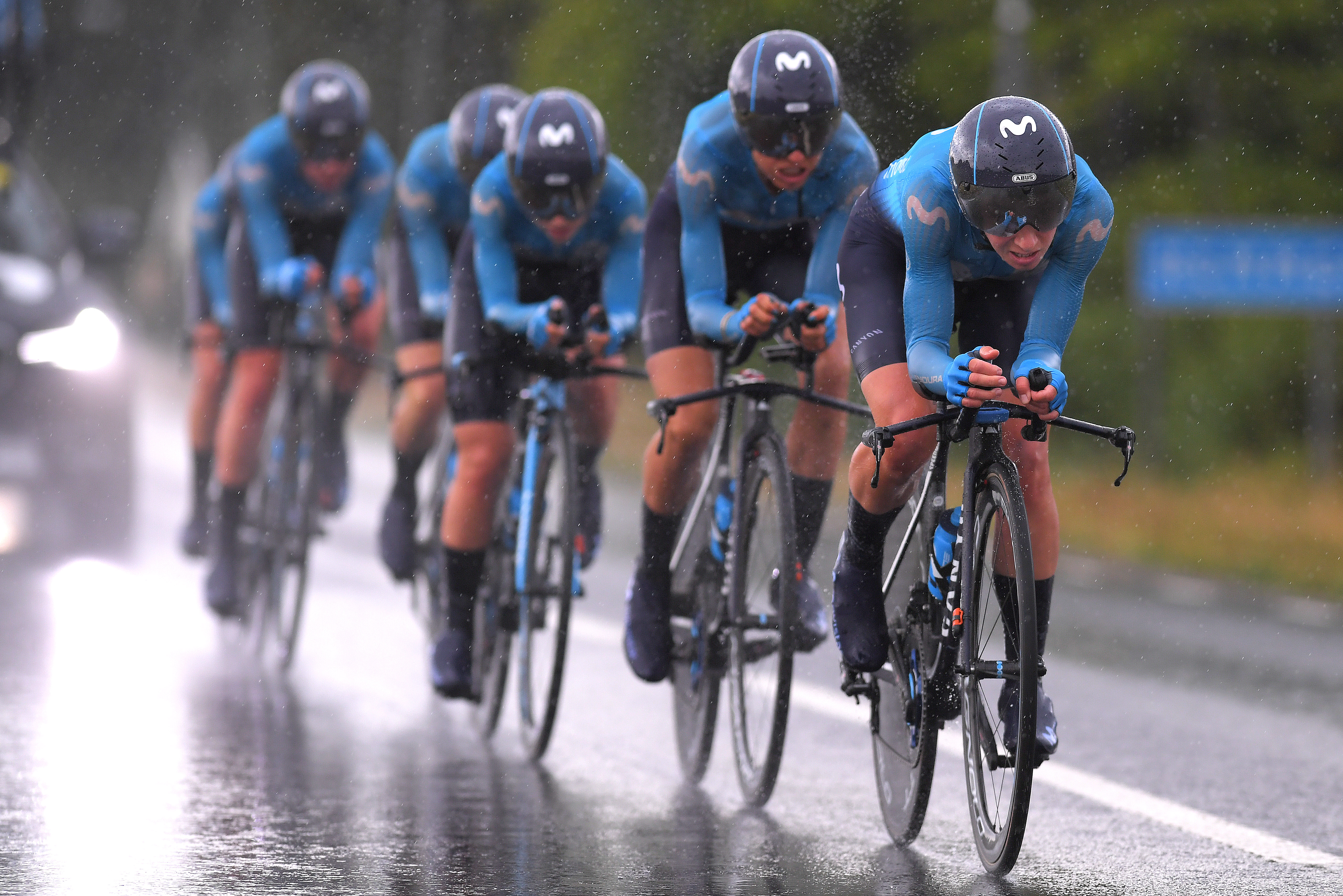Movistar joins the race to become a sustainable and green cycling team
The environmental impact of pro cycling has already been made clear, but what are teams doing to improve?


Movistar women's team racing in the team time trial at the Open de Suede Vargarda 2018 (Photo by Luc Claessen/Getty Images)
Movistar have pledged to become carbon neutral after investigating their carbon footprint.
The Spanish WorldTour team is the latest squad to announce their commitment to becoming environmentally friendly as the impact of pro cycling has been made clear.
Movistar measured its carbon footprint and found their team vehicles and facilities produce the equivalent of 175,000kg of carbon dioxide per year, which is about the same energy consumption of 20 households in a year.
Deceuninck – Quick-Step announced earlier this year they would be going carbon neutral as they revealed they use more than a million kilograms of Co2 a year, but it’s not clear how each team measured their footprints.
Movistar have now joined the race to reduce the carbon footprint of pro cycling.
A statement from the team said: “In a world in full climate emergency, in which humans try to mitigate the consequences of the deterioration of our planet, Abarca Sports and Movistar Team propose , starting in the summer of 2020, a series of measures aimed at becoming the first team 100% sustainable top level cyclist . This purpose is aligned with the sustainable development goals set for 2030 by the UN.
“The company directed by Eusebio Unzué thus aspires to be at the forefront of a cycling always classified as 'green sport' , but which at the same time has had an impact on our planet with its activities that it will now try to compensate.”
The latest race content, interviews, features, reviews and expert buying guides, direct to your inbox!
The team has unveiled plans to make its Pamlona headquarters powered by 100 per cent renewable energy by installing solar panels, while its fleet of vehicles will be replaced with hybrid models.
Movistar said their commitment has been accelerated after experts found that air pollution is likely to increase the number and severity of coronavirus cases.
Earlier this year, Deceuninck – Quick-Step released a detailed breakdown of their annual consumption and carbon emissions, having raced in 20 countries over 272 days in 2019.
>>> US National Championships cancelled as country struggles to contain spread of coronavirus
The team said it uses 1.2 million kilograms of carbon carbon dioxide and revealed they use a whopping 27,000 bottles annually, alongside 750 jerseys, 2,500 caps, 180 helmets and 12,500 gels between their 27-man roster.
Alex Ballinger is editor of BikeBiz magazine, the leading publication for the UK cycle industry, and is the former digital news editor for CyclingWeekly.com. After gaining experience in local newsrooms, national newspapers and in digital journalism, Alex found his calling in cycling, first as a reporter, then as news editor responsible for Cycling Weekly's online news output, and now as the editor of BikeBiz. Since pro cycling first captured his heart during the 2010 Tour de France (specifically the Contador-Schleck battle) Alex covered three Tours de France, multiple editions of the Tour of Britain, and the World Championships, while both writing and video presenting for Cycling Weekly. He also specialises in fitness writing, often throwing himself into the deep end to help readers improve their own power numbers. Away from the desk, Alex can be found racing time trials, riding BMX and mountain bikes, or exploring off-road on his gravel bike. He’s also an avid gamer, and can usually be found buried in an eclectic selection of books.
